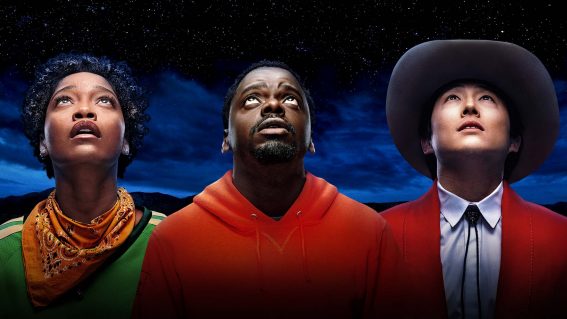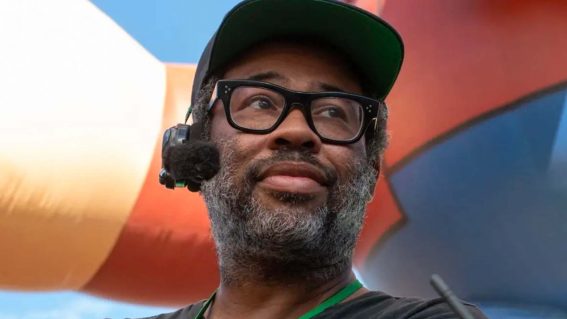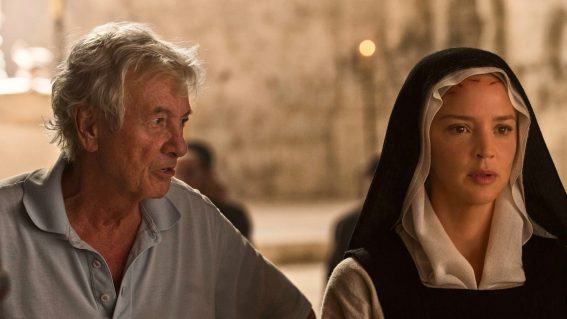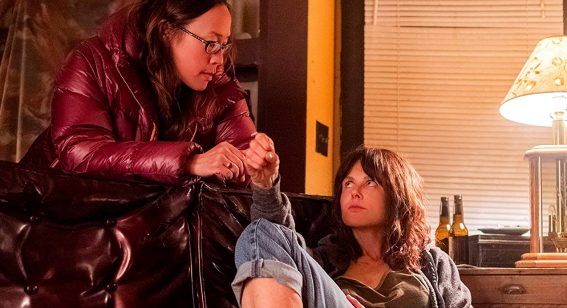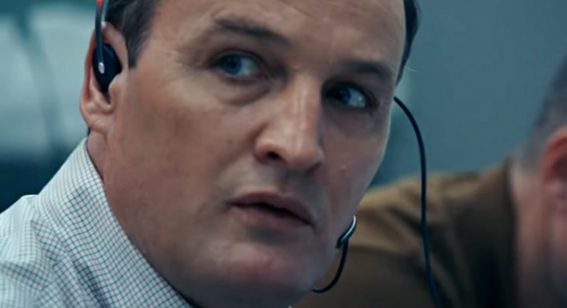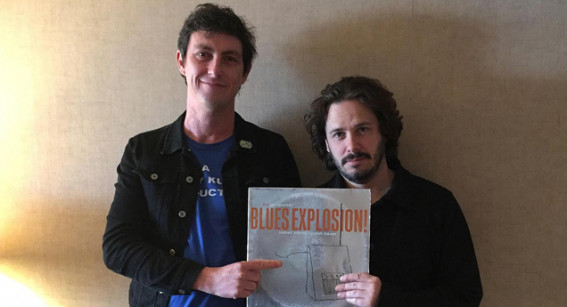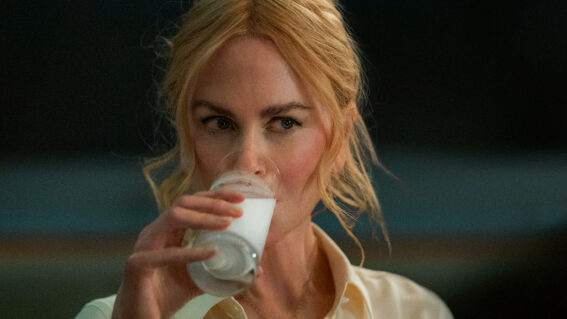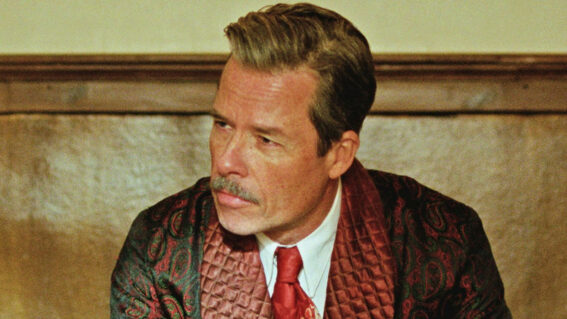Rocketman director tells us about bringing larger-than-life Elton John to the screen
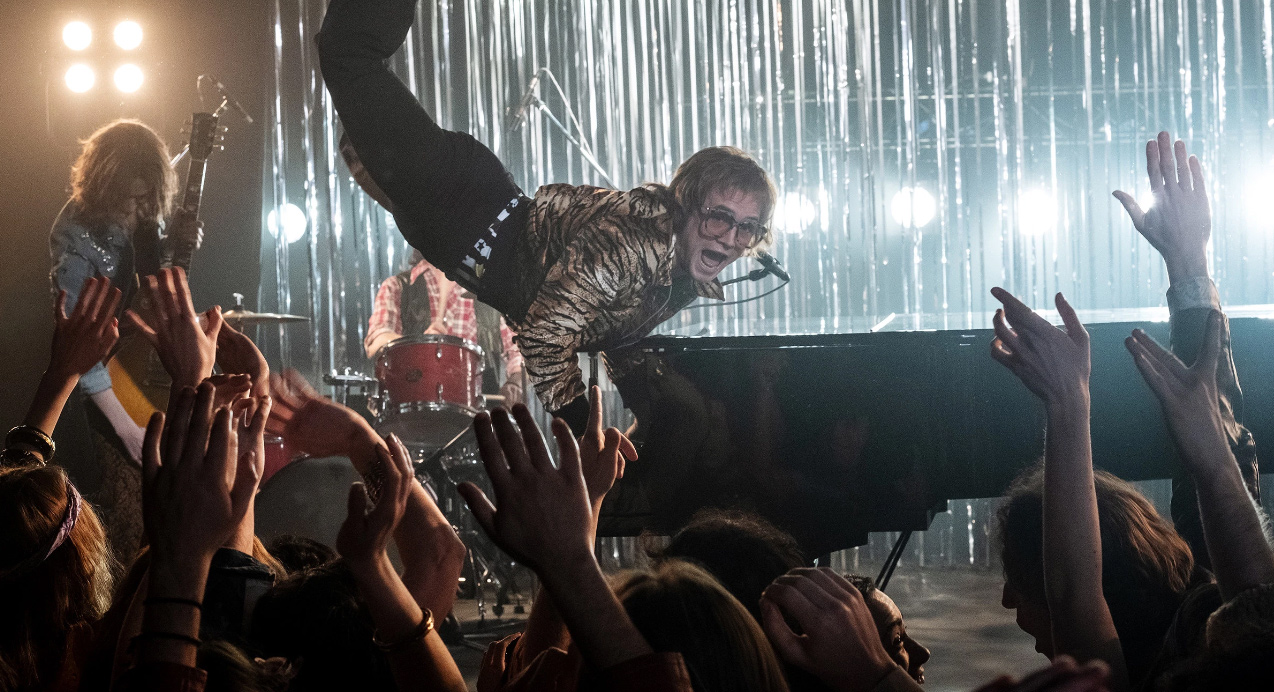
Taron Egerton is Elton John in Rocketman, the larger-than-life musical biopic that traces John from childhood to insane levels of success, and reveals his difficulties with family, fame, substances, and relationships.
Director Dexter Fletcher spoke with Steve Newall a week after the film’s triumphant world premiere at the Cannes film festival.
FLICKS: In the understatement of the year, I bet you’re feeling quite good after Cannes the other day.
DEXTER FLETCHER: Yeah. We had a pretty successful time there. That’s fair to say. They went crazy for it. It was lovely. And Elton was there and Bernie Taupin was there. We had a great time.
Was that the latest in a series of pinch yourself moments with the film?
Yeah. It sort of started when I first signed on to the project, when I got a phone call on a Monday saying, “Elton would like to have lunch with you on Wednesday,” and that was in Las Vegas. So I realised that I was now involved with a different kind of project because I was going to Vegas for lunch [laughs], which doesn’t happen to me often.
So you’re on the correct orbital height right from the beginning.
It seems so. It seems in keeping with what I was embarking on. Yeah. I mean, he was performing there, he was working there, and obviously, he works very hard. But he was keen to talk to me about the project as I was as keen to talk to him about the script.
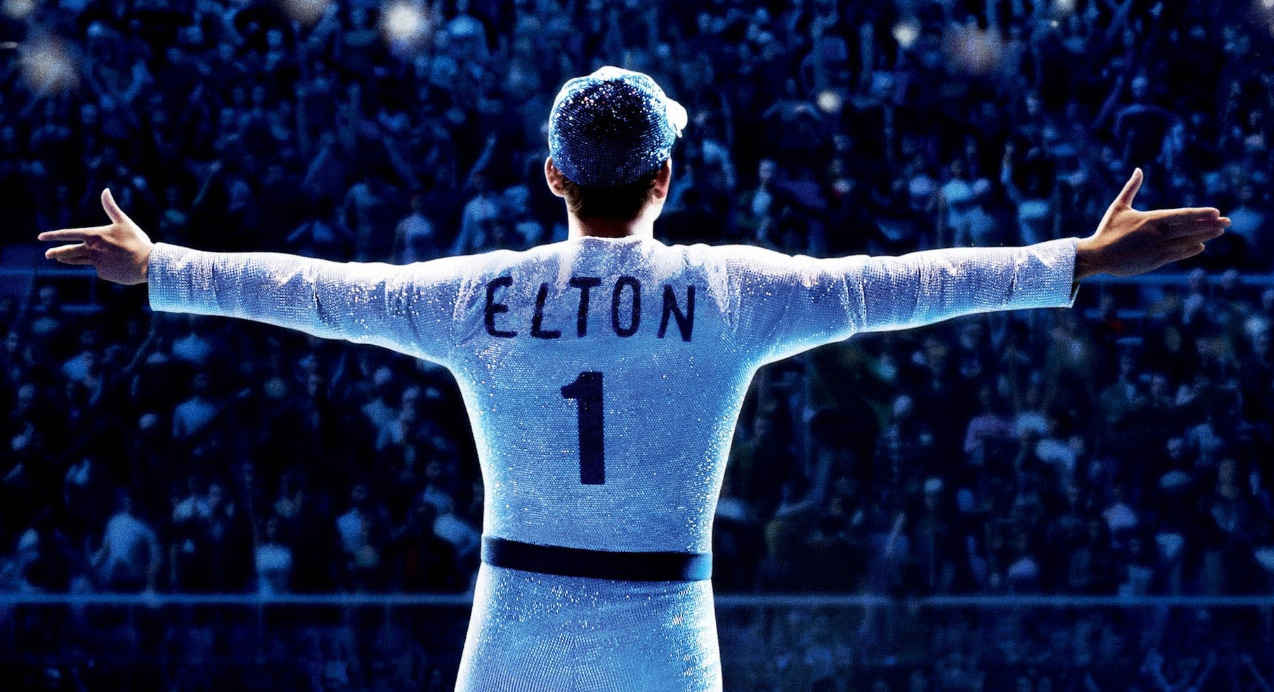
I think people can probably figure out for themselves all the advantages of having Elton very much involved with the film. What challenges or responsibilities did that cause for you, having the subject of your film so present?
Well, I mean, he’s very smart in that he made himself extremely accessible to Taron and myself, and his home, as well, to the production designer. He opened his doors there, him and his husband, very generously.
But once we got underway, he went off on tour and kind of took a step back and let us get on with it because he—rightly or wrongly—trusted us and felt that we would be better served to not have him micromanage us and breathe down our neck and make us nervous.
His husband was always close to hand and often visited the set, but Elton himself was a little busy doing his Farewell Yellow Brick Road tour [coming Down Under in 2020].
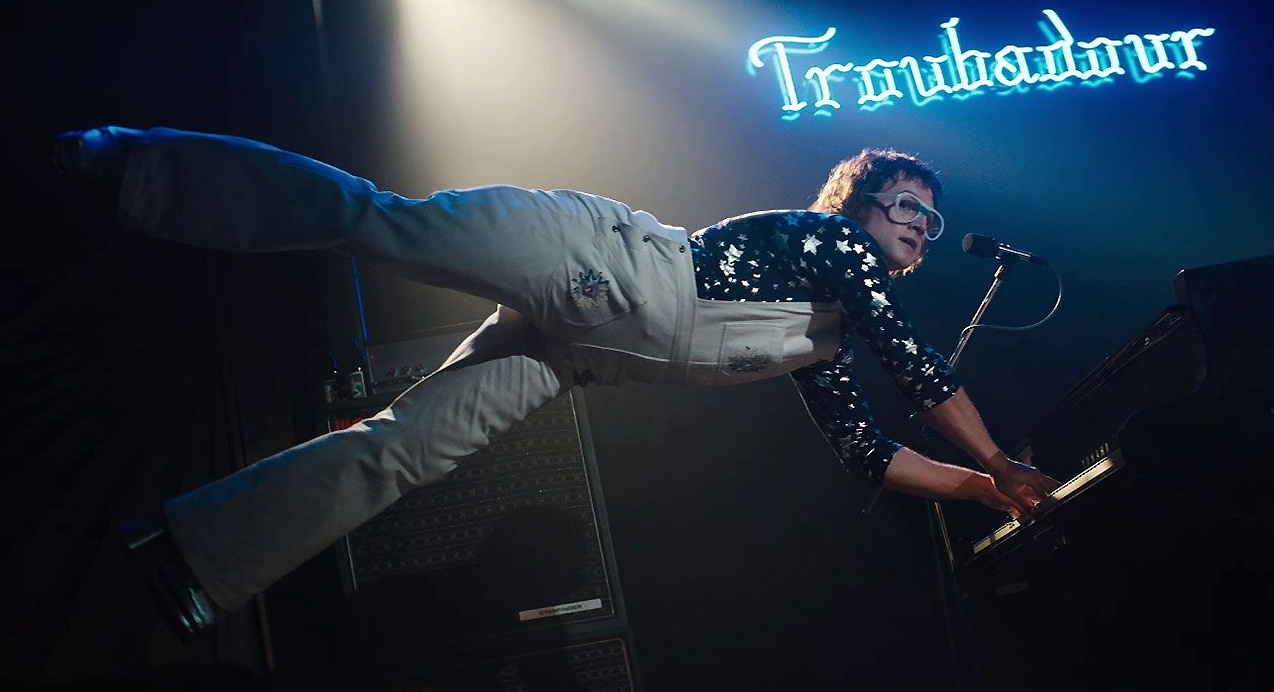
The film has a very adventurous tone and a diverse set of styles all molded into one. Can you think of a key moment that sums up what you were trying to achieve with the film? What was the thing where you first felt that you’d nailed the tone or the kind of core idea of what Rocketman would be?
I think probably the Troubadour sequence [Elton’s first US performance at the classic LA venue] was something that really was a very resonant moment. It was the first thing that Taron filmed, but also it was that very heightened reality as well that I really wanted to create, in terms of everyone floating. So that was very key, and when it came together the way that it did and everyone got very excited, the extras in the club, I kind of felt that we were sort of nailing our stylistic choices.
It’s a pretty massive palette that you’re drawing from here because you have these classically dramatic, cinematic moments. There are more theatrical and then quite absurd parts as well. How did you decide how and when to break out of the reality-based stuff and into more fantasy-driven or even theatrical parts of the film?
I suppose when we get to these emotional beats and I find that the lyrics of the song actually do a lot of the heavy lifting for you dramatically and emotionally. And because I kind of create this fantasy idea, this idea that Elton’s retelling his own story, rather than somebody else sort of giving a blow-by-blow account of what happened in a very sort of dry, documentary type way, that that allows the fantasy of the film to dictate where the music’s really going to take over, and we step into this realm of fantasy and music.
So, the great thing you discover about Bernie Taupin’s lyrics is they’re stories, really, and the more personal those stories are, the more I get to use them as storytelling devices within the film. I change certain lyrics every now and again, but very little.
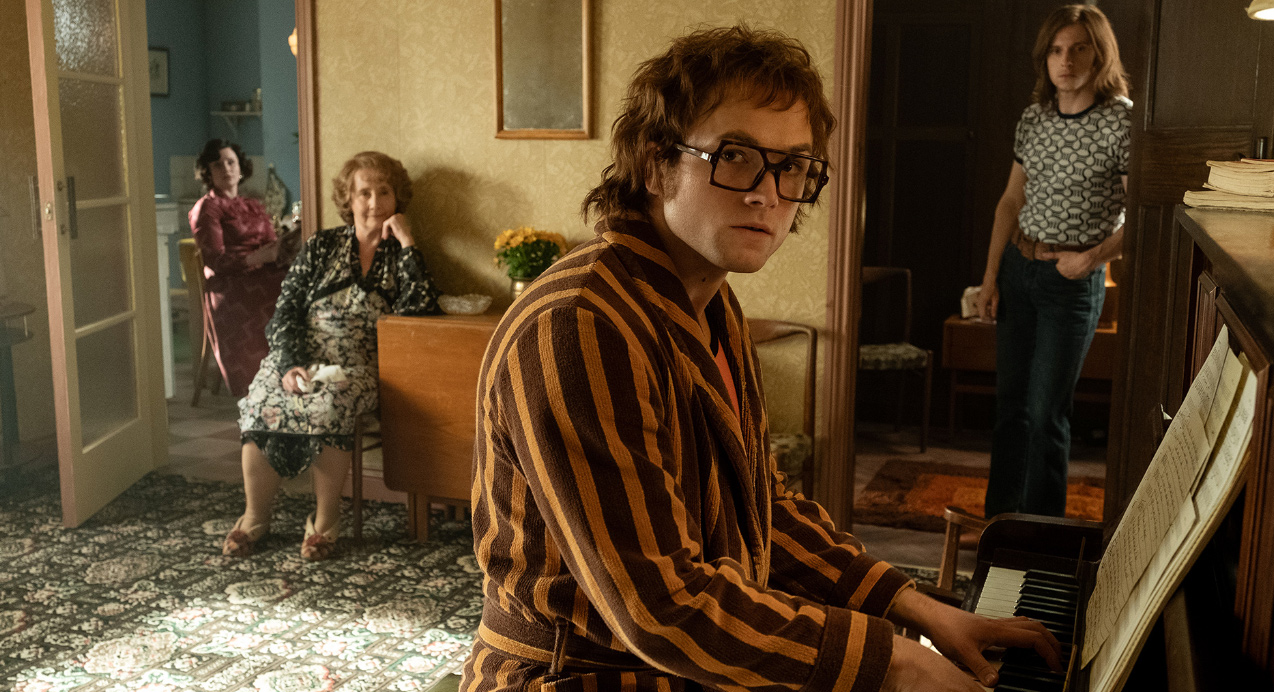
I had to keep reminding myself that they weren’t Elton’s words at times, because they suit the scenes that you’ve set them to so well.
I think what it is, is that Elton and Bernie created those songs together and they’re poetry. Bernie Taupin’s a poet and poets don’t invariably work to music. But what happens is there’s this incredible combination of Bernie’s lyrics and poetry mixed with this incredible ability to write songs and tunes that stay with us and sort of hold those lyrics in the middle of it, in this incredible song that becomes so moving, as well as Elton’s voice.
So though Bernie is the poet, really, the songs are created by Elton. And that’s always the roles that they’ve played, and I think they’re very at peace with how that works. And because they’re so close, I think the lyrics equally apply to Elton’s experience as much as they speak to Bernie’s experience.
I think Your Song, for example, is very much a love letter between two friends. It’s not about a physical love, but a platonic love about brothership and friendship. And that friendship is between the two of them. It’s almost like a letter Bernie’s writing to Elton.
It’s really hard to show people writing a song onscreen. You can think of all the examples where it just doesn’t quite click because it’s such a difficult thing to depict. Did you succeed here because that Elton/Bernie relationship works so well?
I’d like to think so. I mean, there is some very old footage of Elton in 1971 writing Tiny Dancer, and Bernie’s not long given him the lyrics and he’s sitting down at the piano and he’s sort of just making it up on the spot, and it’s one of the greatest songs of the last century being written before your eyes.
So I kind of took my lead from that, but I think what successfully works in the film is that it is a moment between the two of them. And Elton has said very clearly earlier on in the film, “I can see the whole song in my head and I just have to get it out.”
He does have this incredible ability, Elton. He can write a tune to a manual to a washing machine [laughs]. I mean, he’s incredibly gifted when it comes to that.
So that moment when he creates that song, I think what the success of it is is we really understand the relationship of those two people at that time and the friendship. And so the song coming out of that doesn’t feel forced or untruthful. It feels very in the moment.
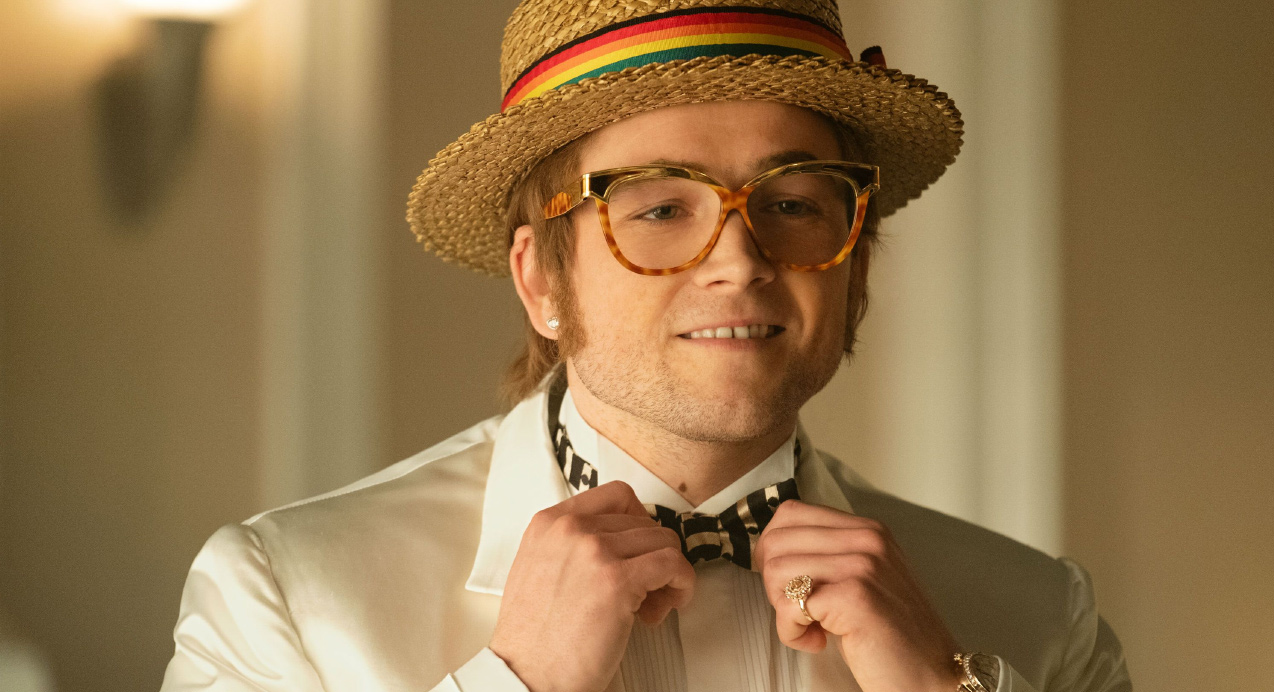
One of the other choices that you make in the film obviously wasn’t great for Elton himself but worked really well as a storytelling device is him blacking out and coming to in new scenes, new places, and with a sense of confusion about what’s going on. Did that feel like a risky move as opposed to more traditionally-structured music pics or biographical films? To have your actual lead character just kind of jump from place to place at times?
I don’t know if I’d call it a risky move. I mean, I suppose it could be construed as that, but what I think is I created a narrative where Elton is telling his own story, and he can jump around the timeline how or when he sees fit because it is his recollection rather than a third-person telling of it.
So I could tell you the story of my life and I might jump around all over the place in order to get to where I want to go with the story. Memory becomes story quite quickly and once it becomes a story, you can change facts or you can forget certain people or you can embellish, and you get to play around with the narrative and the timeline.
And that’s what I took as a great gift with Rocketman, that I didn’t have to sort of stick too hard and fast to the facts. You could tell it in any way you wanted.
I don’t really know where to start with Taron. How fortunate do you feel as a director to have him as the lead in the film?
It’s an incredible gift. I mean, the great beauty of it is that he and Elton are friends and had worked together before on [producer] Matthew Vaughn’s Kingsman films. He phoned me and said, “Taron as Elton,” and I knew this was a genius idea because I know he’s an incredible singer but also a great actor.
I think what Taron has is a vulnerability as well as this incredible drive and honesty that I think is not unlike Elton in a lot of ways. And so the crossing over there of those two was just a genius idea to me right from the outset.
Taron has a commitment level that is second to none and I think it’s because of that, that when he sings those songs, when he acts those very emotional scenes, we forget we’re watching an actor and we’re just simply on this emotional ride with him, and you can’t ask for more than that. And he and I have a great working relationship. This is our second film together [after Eddie the Eagle], so that makes things easier when you have that trust in the relationship to fall back on when you’re doing something as complicated and as complex as Rocketman.


